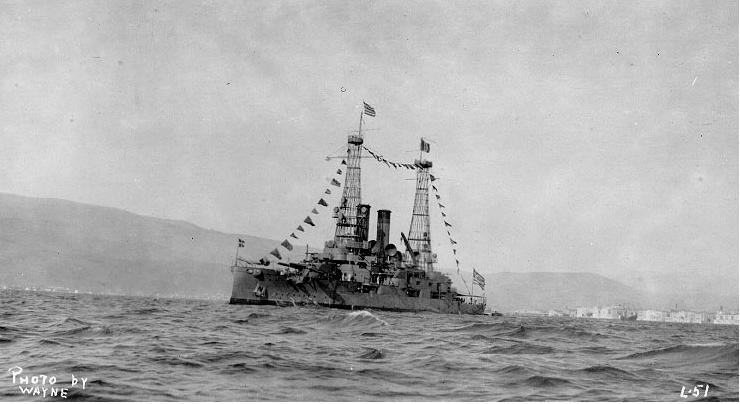
Why do we need a Navy - a strong Blue Water Navy? What is Strategic Depth? Do we still need it? What gives you the best flexibility?
A little JPME II thoughts for you folks - not a typical MarStratMon. Read the whole thing, and let me know what you think of it from a Navy context.
A great man with a great mind like Secretary Kissinger speaks and asks questions - you owe it to pause and ponder his Three Revolutions.
He opens with this - all three VERY Maritime in their second and third-order effects. Read his very accurate and damning appraisal of our "traditional" European allies in the full article, but it is the other two that I find the most interesting.
The long-predicted national debate about national security policy has yet to occur. Essentially tactical issues have overwhelmed the most important challenge a new administration will confront: how to distill a new international order from three simultaneous revolutions occurring around the globe: (a) the transformation of the traditional state system of Europe; (b) the radical Islamist challenge to historic notions of sovereignty; and (c) the drift of the center of gravity of international affairs from the Atlantic to the Pacific and Indian Oceans.Is Kissinger right, and if so how is the Navy focusing on these three Revolutions?
Since neither the international system nor the internal structure of existing states has legitimacy in Islamist eyes, its ideology leaves little room for Western notions of negotiation or of equilibrium in a region of vital interest to the security and well-being of the industrial states.I want to stencil this in front of the few urinals we have left in the Fleet,
That struggle is endemic; we do not have the option of withdrawal from it. We can retreat from any one place like Iraq but only to be obliged to resist from new positions, probably more disadvantageously. Even advocates of unilateral withdrawal speak of retaining residual forces to prevent a resurgence of Al Qaeda or radicalism.
These transformations take place against the backdrop of a third trend, a shift in the center of gravity of international affairs from the Atlantic to the Pacific and Indian Oceans.
Paradoxically, this redistribution of power is to a part of the world where the nation still possesses the characteristics of traditional European states. The major states of Asia - China, Japan, India and, in time, possibly Indonesia - view each other the way participants in the European balance of power did, as inherent competitors even when they occasionally participate in cooperative ventures.
...
In the past, such shifts in the structure of power generally led to war, as happened in the case of the emergence of Germany in the late 19th century. Today the rise of China is assigned that role in much alarmist commentary.
True, the Sino-American relationship will inevitably contain classical geopolitical and competitive elements. These must not be neglected. But there are countervailing elements. Economic and financial globalization, environmental and energy imperatives, and the destructive power of modern weapons impose a major effort at global cooperation - especially between the United States and China.
An adversarial relationship would leave both countries in the position of Europe after the two World Wars through self-destructive conflict with each other, while other societies achieved the pre-eminence they sought.
No previous generation has had to deal with different revolutions occurring simultaneously in separate parts of the world. The quest for a single, all-inclusive remedy is chimerical.
In a world in which the sole superpower is a proponent of the prerogatives of the traditional nation-state, where Europe is stuck in halfway status, where the Middle East does not fit the nation-state model and faces a religiously motivated revolution, and where the nations of South and East Asia still practice the balance of power, what is the nature of the international order that can accommodate these different perspectives? What should be the role of Russia, which is affirming a notion of sovereignty comparable to America's and a strategic concept of the balance of power similar to Asia's? Are existing international organizations adequate for this purpose? What goals can America realistically set for itself and the world community? Is the internal transformation of major countries an attainable goal? What objectives must be sought in concert, and what are the extreme circumstances that would justify unilateral action?Ponder.
This is the kind of debate we need, not focus-group-driven slogans designed to grab headlines.









No comments:
Post a Comment